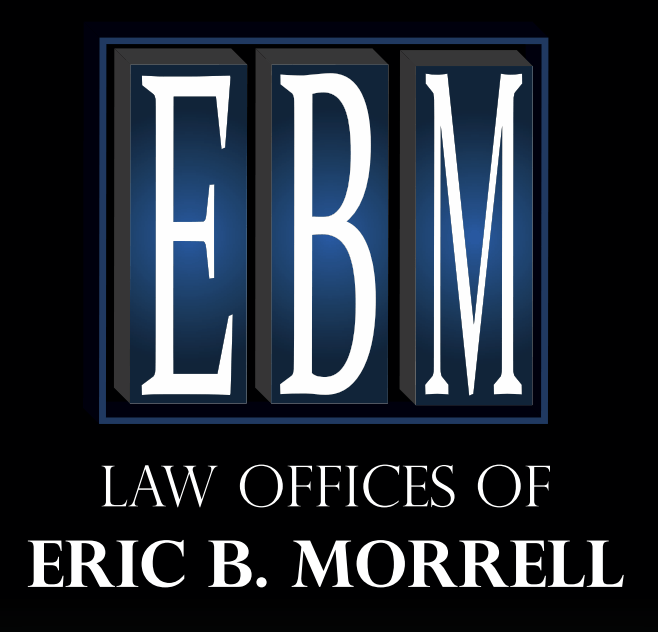Client Login
×How Significant Changes In New Jersey Expungement Law May Affect You
Expungements can be found to be beneficial in many ways, from making the search for employment opportunities less complicated, to simply ensuring that unwanted information about the applicant is not accessible to the world. On October 1, 2018, new expungement laws, essentially amending the current ones, were put in place to benefit expungement applicants within the state of New Jersey. The law, notes seven (7) statues that have been amended.
It is important to know that you must first qualify for an expungement prior to applying for one. Thus, we should understand who can now qualify for an expungement. The applicants who can apply for an expungement can do so under five main circumstances:
- The applicant has been convicted of a crime, but has no convictions for another crime both before and after the conviction that they are applying to have expunged.
- The applicant has been convicted of one crime, and has a maximum of three (3) disorderly persons (DP) or petty disorderly persons (PDP) offenses.
- The applicant has been convicted of multiple crimes, or both multiple crimes and DP/PDP offenses, however had those offenses listed under a single judgement of conviction (JoC). A judgment of conviction is simply the court’s decision on the case, including sentencing and the court’s findings. Again the applicant must have no other prior or subsequent conviction(s) for other offenses or crimes, aside from those within the expungement application.
- The applicant has been convicted of multiple crimes and/or DP/PDP offenses, but those crimes were committed in what is referred to as a “crime spree”. This means that these crimes were either interdependent, or closely related in circumstance, and had occurred within a short time frame. The date of conviction is not relevant here. There is a one time limit in applying under these circumstances, or
- The applicant has been sentenced for individual crimes or convictions, as long that they committed no other crimes prior or subsequent to those listed within the application.
In a major win for expungement applicants in New Jersey, the waiting period requirements to file for an expungement have been reduced. A person may submit an expungement application for an indictable offense if at least one of the following conditions is met:
Six (6) years from the most recent conviction have passed and all requirements (payment of the fine, proper completion of probation/parole, and release from incarceration) have been aptly met.
A fine has not been paid due to circumstances other than intentional neglect, but the six (6) year waiting period has been satisfied.
The fine has been paid, and the six (6) year waiting period has been satisfied, however, six (6) years have not passed since the payment of the fine.
A minimum of five (5) years has passed, but the six year waiting period for completing all requirements has not been satisfied. This, however, would be considered an expedited expungement and would require an argument to be made as to why the expungement should be expedited.
Another introduction to benefit expungement applications is what is known as “conditional expungement pending fine payment”. This, under NJSA 2B:19-1, allows the court to approve an expungement while allowing for the applicant to pay the remainder of his/her dues following the approval. Note: the court reserves the right to nullify an approved expungement if the applicant intentionally neglects to make payments following the approval of the expungement. The expungement can be restored under certain circumstances in which the applicant does comply with the agreed upon payment methods.
The laws have also been amended with the intent of benefitting applicants with charges of sale, distribution or possession with intent charges for marijuana or hash. This amendment would allow these expungements to work respectively to the level of offense within the State’s Criminal Code, and primarily goes to benefit low-level offenders. The same code(s) would apply to an offender under 22 years of age who has been specially permitted to apply for an expungement one year from his/her date of conviction, completion of parole or probation, or release from custody, whichever of the three happened last. Eligibility will be granted when the crime is graded as a crime of the fourth degree. Essentially, anyone 21 years of age or younger who was convicted for an offense under chapter 35 or 36 for title N.J.S.2C:52-3, C.2A:170-77.5, or C.2A:170-77.8, and has allowed a year to surpass since the end of their parole, probation, or discharge from custody (whichever is latest), may apply for expungement in their respective county Superior Court where they had their initial conviction. This is not applicable to anyone convicted of sale/distribution of a controlled dangerous substance or possession with the intent to sell any controlled dangerous substance, unless:
- Where the total marijuana sold, distributed or possessed with intent to sell was less than one (1) ounce, or
- Where the total hashish sold, distributed, or possessed with intent to sell was less than five (5) grams.
The change comes in the classification of a fourth degree offense based on the amount of marijuana/hashish in the possession of the offender.
Just as there are grounds for an expungement to be accepted, there are obviously grounds for denial. They are:
- Any statutory requirements related to the conviction have not been fulfilled
- The need for the records to be available essentially outweighing the need for the expungement; the application will only be able to be denied if an objection is made by a party given the notice pursuant to N.J.S.2C:52-10; the objector has the burden of proof in essentially proving the validity of their objection
- The conviction being expunged had a dismissal/acquittal as a result of a plea bargain involving the conviction of other charges, this petition under N.J.S.2C:52-6. Once the conviction itself is expunged, however, this bar is eliminated.
- There is a current ongoing civil litigation matter between the applicant and his/her representatives and the State, or any State agency/body.
If an applicant is applying either to - Have a municipal ordinance violation expunged, or
- have records expunged pursuant to N.J.S.2C:52-6,
- and they have had a previous conviction expunged.
Note: Information contained in expunged records may be supplied to the Violent Crimes Compensation Office, in conjunction with any claim that has been filed by said office.
In conclusion, the laws passed on October 1 were a step forward in terms of helping applicants. Expungements are extremely beneficial for many reasons, and can go a long way in advancing a career goal, a life goal, and more. The Law Offices of Eric B. Morrell is fully equipped with both the knowledge and the resources to handle any and all forms of expungements. Contact our offices at (732)-249-9933 to check your eligibility and begin the expungement process.
Law Offices of Eric B. Morrell
New Brunswick Office
142 Livingston Avenue
New Brunswick, New Jersey 08901
Union County Office
1812 Front Street
Scotch Plains, New Jersey 07076
Phone:
732-249-9933
Free Case Evaluation
We will get back to you as soon as possible.
Please try again later.
Law Offices of Eric B. Morrell
Law Offices of Eric B. Morrell is located in New Brunswick, NJ and serves clients in and around Middlesex County, Union County, Somerset County, Monmouth County, Essex County, Hudson County, Ocean County, Mercer County, Burlington County, Camden County, Hunterdon County, Morris County and more.
Attorney Advertising. This website is designed for general information only. The information presented at this site should not be construed to be formal legal advice nor the formation of a lawyer/client relationship. [ Do Not Sell My Personal Information ]
Martindale-Hubbell and martindale.com are registered trademarks; AV, BV, AV Preeminent and BV Distinguished are registered certification marks; Lawyers.com and the Martindale-Hubbell Peer Review Rated Icon are service marks; and Martindale-Hubbell Peer Review Ratings are trademarks of MH Sub I, LLC, used under license. Other products and services may be trademarks or registered trademarks of their respective companies. Copyright © 2021 MH Sub I, LLC. All rights reserved.








